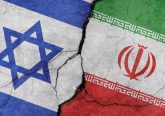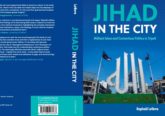
When the ‘Arab Spring’ reached Jordan in 2011, every local and international news outlet repeated the same message: ‘the people want to topple the regime’. But reflecting on my involvement with Jordan over the years, I wonder which ‘people’ they were referring to. The people off the street didn’t want to overthrow their King. On the street, the protests I drove past on the way to work called for evolution rather than revolution. Public gatherings, often claimed by the media as reaching the tens of thousands, were cancelled on numerous occasions due to low attendance. In stark contrast to the violent force employed in other Arab monarchies, the police were praised for handing out fruit juice to protestors. In fact, I often heard pro-reform bloggers and journalists being criticised as ‘attention-seeking nobodies’. Two years on, and 7,000 street demonstrations later, ‘the people’ have still not toppled the regime. This begs the question: what do the people want? Do the people want to keep their monarchy?
There are plenty of arguments in academia suggesting that a monarchy is incompatible with modernity. The centralization of power required for state-building should undercut monarchy by requiring monarchs to share authority with new groups, such as the urban middle class. Monarchsshould eventually yield to the logic of this process and become constitutional monarchs, or face violent revolution. The behaviour we are observing in the countries of the Middle East should be conducive to the expected ‘fourth wave of democratisation’.
But none of this has happened.
I think there are a number of explanations for Jordon’s durable monarchy: effective and benevolent leadership, a ‘unique’ political culture, ‘distinctive’ legitimacy, ‘selective’ co-option and repression of opposition, ‘rentierism’ and the involvement of international geo-economic and geo-strategic interests. Yet, this being said, it is time to move beyond the recycled generic arguments of ‘culture’, ‘legitimacy’ and ‘religion’ – all social constructions subject to manipulation and bias – to more concrete economic explanations.
Adopting a principal-agent perspective offers a new explanation of why Arab monarchs, as ‘principals’, have hung on through various historical epochs. Key to the principal agent relationship is the problem of moral hazard, where multiple agents retain conflicting goals that are not always in line with those of the principal. This asymmetry of goals translates into mistrust, creating failures and sub-optimality in the market by increasing uncertainty and risk. In the political arena, this leads principals (such as monarchs) to give agent groups different incentives, mainly in the form of subsidies and monetary compensation. Meanwhile they also control opposition groups as well as third-party actors.
A monarchical political arrangement is sub-optimal because of monitoring-intensity theory: the converse relationship between monitoring and intensity. As individuals are not given the perfect-market option to regulate their own behaviour (merit based opportunities to enter government, rather than nepotistic structural arrangements), the likelihood of opposition and resentment increases. Furthermore, the behaviour of the privileged few cannot be controlled, as they are promised indefinite job tenure regardless of merit. This ‘wasta’ leads to distorted ‘rules of the game’, where the prevalence of informal institutions associated with neo-patrimonialism influences
To give an example, the past year in Jordan has seen the emergence of powerful forces of discontent from the country’s East Bank tribes. These ‘East Bankers’ have long represented the regime’s power base, and as agents, they exchange their support for the regime for privileged access to jobs in the state bureaucracy, security services and broader economic rewards. But the tribes increasingly feel they are being abandoned in favour of the Palestinian-dominated urban elite, meaning that the principal no longer able to meet the demands of new jobs, higher salaries and rural development. Given that East Bankers are fearful of empowering Palestinians at their own expense, they continue to limit the extent of their desired political reforms, increasing the moral hazard of the principal-agent contract. This allows the principal to stay in place, and the monarchy to continue its reign.
The principal-agent framework has wider implications that are applicable to all Middle Eastern countries. For example, beyond the removal of the principal and his immediate family, can the broader regime of agents and networks of patronage be removed? It is clear that the failure of urban and tribal opposition agents to unite around a common cause has weakened their ability to impose meaningful pressure on the principal. Therefore, the dynamic is not simply between principal and agents. It remains to be seen if counter forces can emerge to challenge existing agent groups, as happened, democratically and without revolution, in Turkey after 2002.
At the moment, however, the principal remains the principle of least effort.







1 Comment
You can continue the conversation with me on facebook: https://www.facebook.com/drnixmalik or twitter: @nixmalik